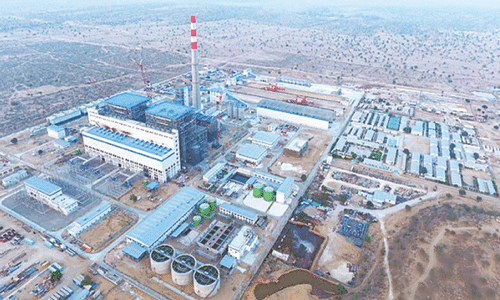KARACHI, Aug 6: The government has decided to formally train and involve lady health workers (LHW) in routine immunisation activities across the country and give a supervisory role to vaccinators already employed under the expanded programme on immunisation.In Sindh, 5,000-6,000 LHWs, who are employed in 11 districts, will start getting special training soon to perform vaccinations against seven vaccine preventable diseases, in addition to their existing assignments.
Senior health officials told Dawn on Wednesday that the decisions to these effects were taken at a joint meeting of the National Lady Health Workers’ Programme and Expanded Programme on Immunisation, which concluded on Tuesday in Islamabad. The aim was to get the routine immunisation coverage improved, particularly in rural areas and urban slums, they said.
The LHW programme was originally aimed to deliver basic health services at the doorsteps of the poor segments of society through health workers living in their localities.
The programme, currently being implemented in all districts of the country, has over 100,000 LHWs.
Each LHW, acting as a bridge between the care providers of formal health and the community, covers 1,000 people or 150 houses, providing services in the field of child health, nutrition, family planning and treatment of minor ailments. Population coverage of the programme is about 70 per cent, according to official sources.
The LHWs, supposed to provide promotive, preventive and curative services to communities in their respective catchments, are also involved in national-level health related activities such as polio national immunisation days, maternal and neonatal tetanus elimination activity, EPI vaccination, DOTS therapy, nutrition activities and AFP surveillance, said a source.
In Pakistan, the Expanded Programme of Immunization was launched in 1978 with the ultimate objective of reduction in morbidity and mortality caused by vaccine-preventable diseases. However, they have miserably failed to meet the targets, mainly due to their restricted mobility, lack of interest in the assignments, budgetary constraints, inadequate monitoring and poor follow-ups and lack of political will and community support.
The EPI currently targets seven vaccine-preventable diseases -- poliomyelitis, tetanus, including neonatal tetanus, diphtheria, Pertussis, measles and childhood forms of tuberculosis and introduction of hepatitis B immunization — under one year of age children, besides conducting frequently observed national and sub-national programmes for the administration of oral polio vaccines.
Prof Rashid A. Jooma, the director-general health, Pakistan, said the need to integrate the routine immunisation programme with the LHW programme had been felt for long, but now the federal government, in principle, had decided to involve the lady health workers to improve routine immunisation across the country.
He said the government had already launched a pilot project in the NWFP involving lady health workers, and indications were encouraging.
Soon we might go for replication of the pilot project in other parts of the country, under which about 118, 000 LHWs would be given special training in phases.
The regular vaccinators employed under the EPI would gradually be withdrawn from field activities and would be given a supervisory role over the LHWs, in addition to discharging other duties at EPI centres and basic health units, he said in reply to a question, adding that the country needed to reduce significantly the morbidity and mortality of the vaccine-preventable diseases.
The programme manager of the EPI, Sindh, Dr Mazhar Khamesani, said the districts of Sindh selected for training of LHWs were Kashmore, Ghotki, Tharparkar, Karachi, Dadu, Badin, Thatta, Shikarpur, Jamshoro, Sukkur and Khairpur.
From September onwards, the LHWs of the said districts would have to undergo training for at least six days in a month regularly for six months, following which they would be assigned to perform as vaccinators for routine immunisation of children of age up to eleven months, Dr Khamesani said, adding that LHWs of other districts would be included in the training programme in the next phase.













































Dear visitor, the comments section is undergoing an overhaul and will return soon.